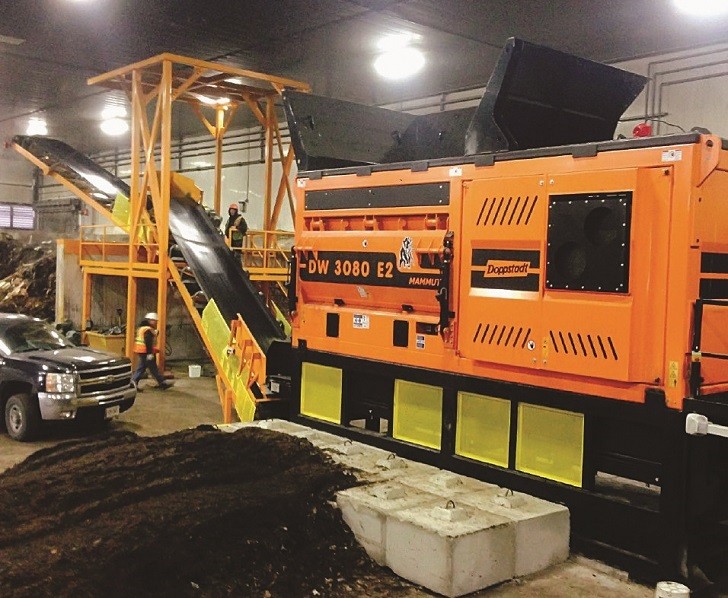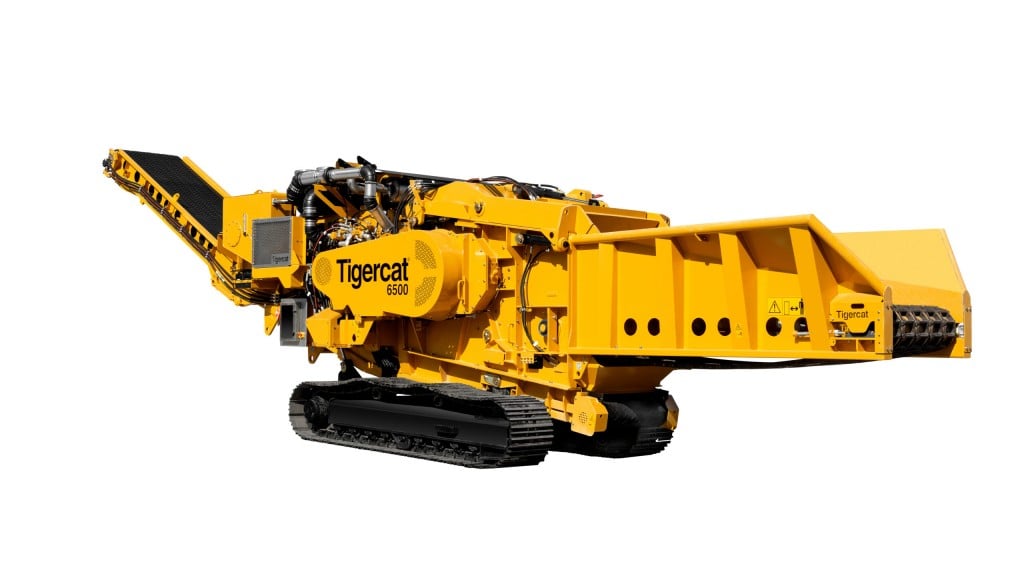Electric-powered slow speed shredder latest addition for Ontario composter
Experienced composter sure that organics recycling will continue to expand

All Treat Farms, located in Arthur, Ontario, has been part of the evolution of organics recycling since 1955, when the company started composting manure. Over the past 60 years, the company says they have witnessed various components of the industry evolve greatly. They have seen the introduction of technology for odour control and advanced processing equipment, huge changes in composting rules and regulations, as well as the maturation of end markets.
Today, All Treat Farms has expanded into processing leaf and yard waste, source-separated organics (SSO), digestate and IC&I (Industrial, Commercial and Institutional) waste. Recently, the company started using a DW3080E2 electric-powered slow-speed shredder from Ecoverse, which has enabled them to process a wider range of organic materials than ever before.
“It does a nice job shredding and blending without balling everything up, creating a uniform product that is mixed properly,” says All Treat Farms president, George White. “It helps keep the pile structure so it is easier to compost and keeps it anaerobic.”
Another beneficial feature of the DW grinder for All Treat is its electrical power, which allows for more capacity and throughput.
“All you need to do is push a button,” says White. “You don’t have to worry about warming up the equipment and changing the oil. It reduced our emissions, noise and allowed us to blend and mix the product better than before, when we were using a diesel machine. It allows for higher capacity and throughput with less downtime and less maintenance.”
The DW3080E2 also includes breakaway combs that have the capability to handle contaminants without stopping the operation.
Although he says he cannot truly predict the future, White has no doubt the organics recycling industry will continue to expand. “It’s going to happen, no question about it.” He sees anaerobic digestion becoming more prominent in the industry, but believes there will always be room for aerobic composting as well.
“In Ontario, I don’t see a lot of new compost facilities being setup currently,” says White. “The regulations have become so difficult to live with. However, the composting industry is here to stay – and so is anaerobic digestion.”



